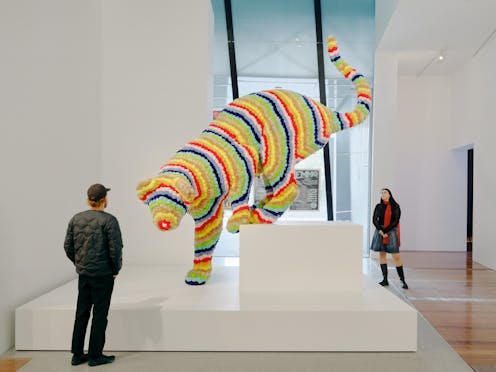
Review: Melbourne Now, National Gallery of Victoria.
Melbourne Now 2013 is still spoken about with reverence.
It was a memorable exhibition: a shot of Viagra to the exhibiting of contemporary Australian art by a public art gallery. It was immense, occupying both buildings of the National Gallery of Victoria and surrounds, and it brought to the fore much art that had never been seen before, combined with some well-known artists still making interesting work.
Melbourne Now 2023 is a more targeted exhibition, confined to the Federation Square building, with roughly half the number of exhibitors compared with its predecessor a decade earlier.
The show does combine the work of some well-established artists, including Shaun Gladwell, Christian Thompson, Katherine Hattam and Julia Ciccarone, with a splurge of fresh blood, names largely unknown outside a tight circle within the arts community.
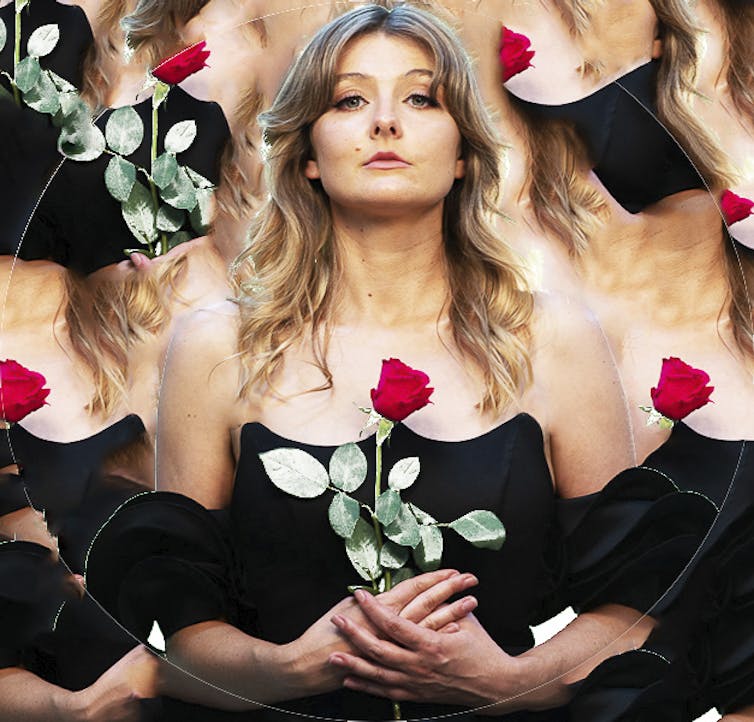
Art is treated within a broad spectrum of the cultural landscape to include not only painters, printmakers, sculptors, photographers, filmmakers and installation artists, but also designers, studios, firms, practising architects, ceramicists, video artists and those working in virtual reality, jewellery, performance, product design and publishing.
These are some of the people who now, or in the near future, will design the way our world looks, feels and operates.
In a vast, sprawling and inspiring exhibition that seems to burst out of its architectural framework, it is pointless to debate omissions in the selection of artists when we are surrounded by so much vital and interesting art that challenges us on so many levels.
Read more: Melbourne Now – the art of the contemporary city
Intense visual excitement
Many of the artists are making their NGV debut. This is not a “stable” of artists that has been fostered by a gallery, an accusation that has been levelled, with some justification, at several state galleries.
Many of these artists are not new to the institutional exhibiting scene and may have been seen in some regional galleries, public art spaces and dedicated municipal art centres, but they are new to the NGV and the broader public.
There is a sustained and intense visual excitement that pervades all levels of The Ian Potter Centre: NGV Australia.
We move from Rel Pham’s huge shrine-like “temple” in a darkened room, accompanied by a chorus of 640 computer fans with their cyberspace breeze, to Jenna Lee’s illuminated lanterns in forms reminiscent of traditional Gulumerridjin (Larrakia) dilly bags, and Troy Emery’s quirky nearly three-metre-long textile sculpture, Mountain climber, ready to pounce on the viewer.
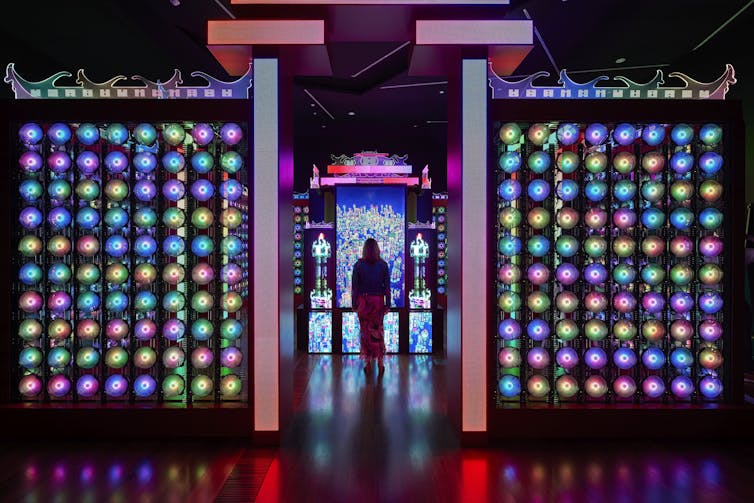
Although each of these works is spectacular and packs a considerable wow factor, they cannot be dismissed as purely hedonistic eye candy designed as an escapist parachute out of reality.
Pham questions the ecological sustainability in our reliance on technology with the colours of the neon illumination chosen for symbolic considerations in Asian cultures. He creates an environment where the physical and digital worlds blur.
Lee, a Larrakia, Wardaman and Karajarri artist, views her lanterns as illuminating her ancestry and its mystical complexities.
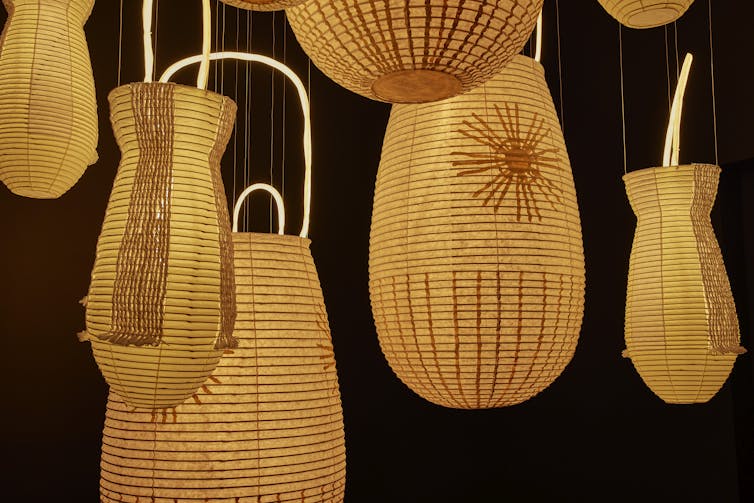
Emery’s work affected me more directly than I anticipated. I was prepared for an encounter with something approaching high kitsch with brightly coloured pom-poms forming the surface of this creature. For all its playfulness, there is something quite sombre in an encounter with this giant feline, shown like a specimen taken out of the wild, now beautified and preserved in a museum.
It’s possibly something to do with animal extinction and an interrogation of the relationship between us and non-human animals.
It will become a new icon for our time.
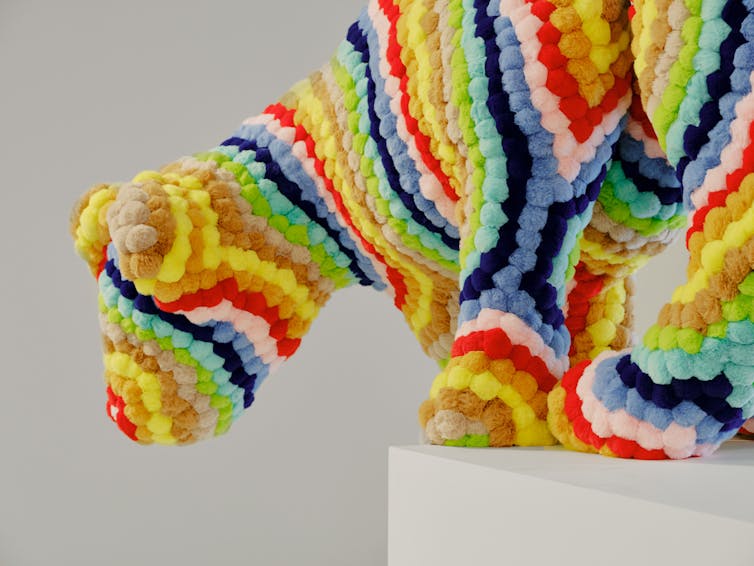
Art meets design
The distinction between arts and crafts dissolved many decades ago. Melbourne Now continues the process in dissolving the distinction between the visual arts as studio practice and functional design, fashion and applied photography.
The Design Wall that caused major ripples a decade ago has returned as a large-scale installation representing 23 Victorian design studios that over the past decade created new consumer products from guitars, pink cricket balls to electric motorbikes.
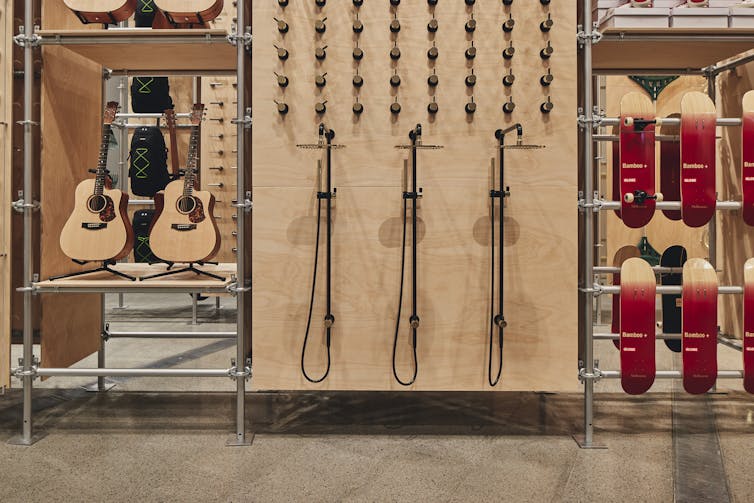
Fashion Now brings together about 20 local fashion designers including J’Aton Couture, Ngali and Kara Baker.
Jewellery Now carries out a similar exercise with contemporary jewellers spread over about 60 new or recent pieces that explore a variety of forms. They include incredible pieces by Inari Kiuru, Tessa Blazey, Kirsten Lyttle and Anke Kindle.
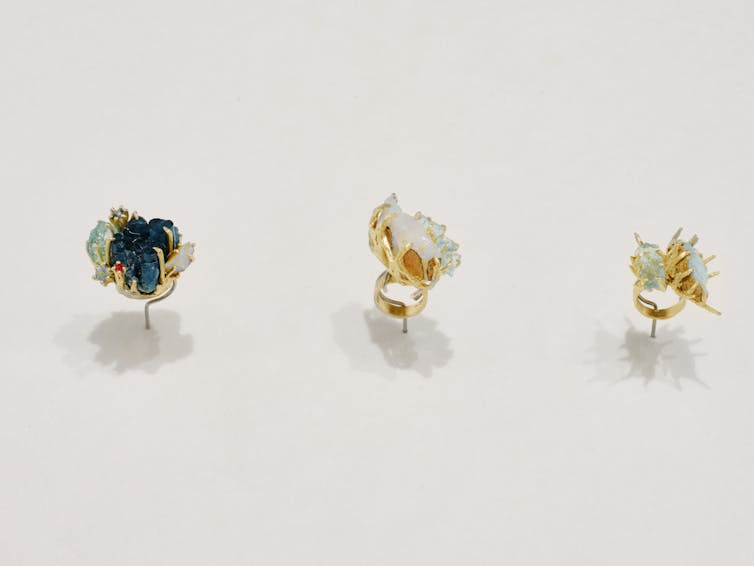
As so much in this exhibition, fundamental questions are raised concerning boundaries. What constitutes jewellery practice today and how is jewellery consumed by society?
Civic Architecture investigates five award-winning civic projects by Melbourne architects where different neighbourhoods have been transformed.
No House Style assembles some Melbourne-based furniture designers and architects who have departed from mainstream trends to create their own unique language.
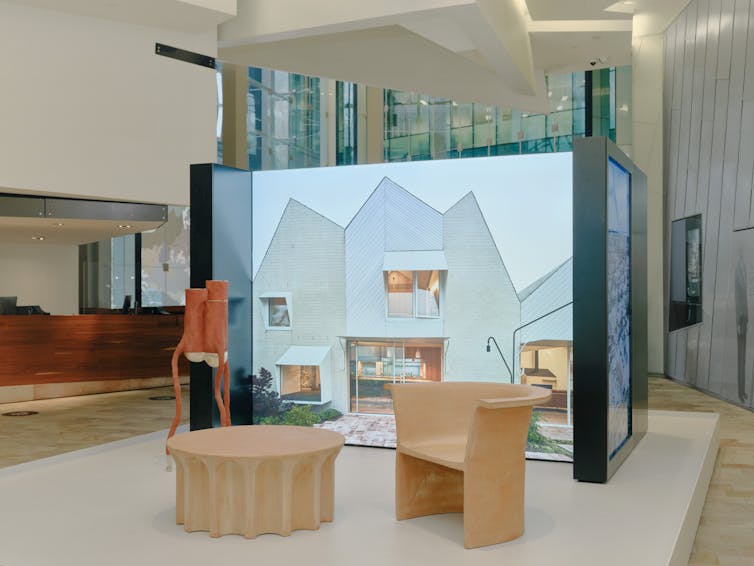
Vessels examines 15 artists who create containers from materials as varied as ceramics, fibre, mixed media and experimental biomaterials.
The art of photography is interrogated through Slippery Images, a glance at the work of 12 photographers. Printmaking is represented with a Print Portfolio by 12 printmakers plus the irrepressible Gracia and Louise and their bat installation.
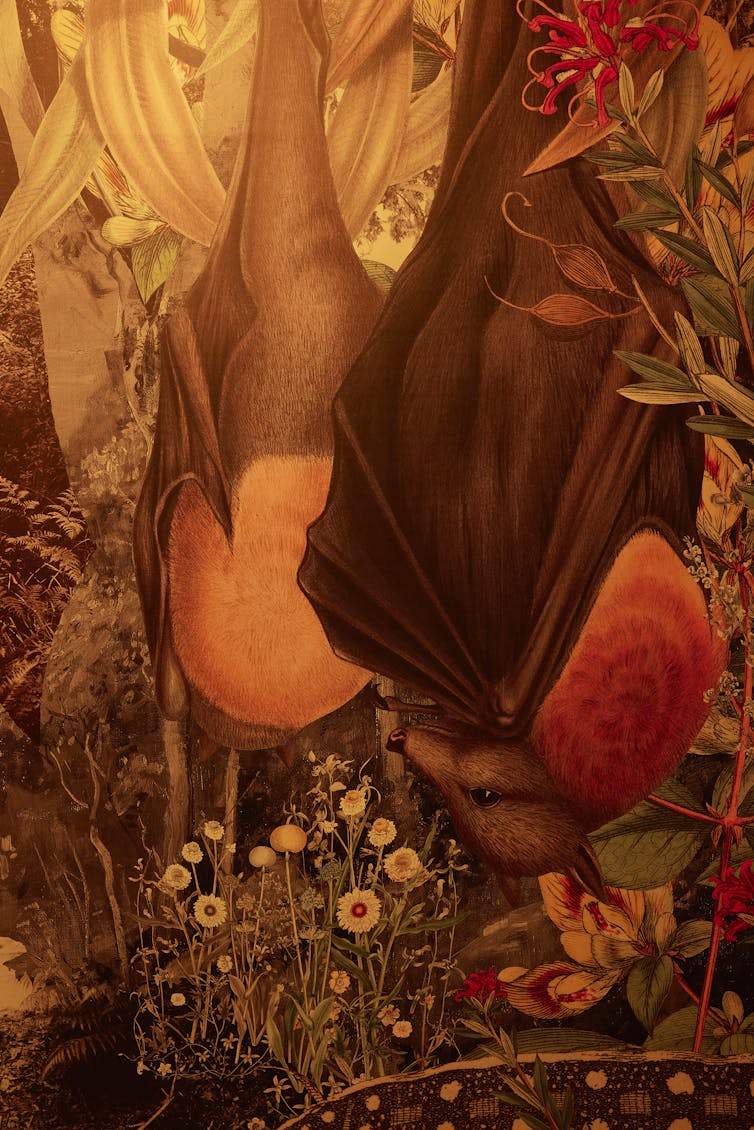
A memorable exhibition
Conceived as a snapshot of visual culture in Melbourne and Victoria, this exhibition is challenging, visually exciting and memorable.
If you find it a little bewildering, you can turn to Gee, an AI chatbot developed by Georgia Banks, who has been programmed as a target for your affections, or lie down for Shaun Gladwell’s out-of-body experience.
Read more: What architects do and how they do it, at Melbourne Now
Melbourne Now is at the The Ian Potter Centre: NGV Australia until August 20.
Sasha Grishin does not work for, consult, own shares in or receive funding from any company or organisation that would benefit from this article, and has disclosed no relevant affiliations beyond their academic appointment.
This article was originally published on The Conversation. Read the original article.







